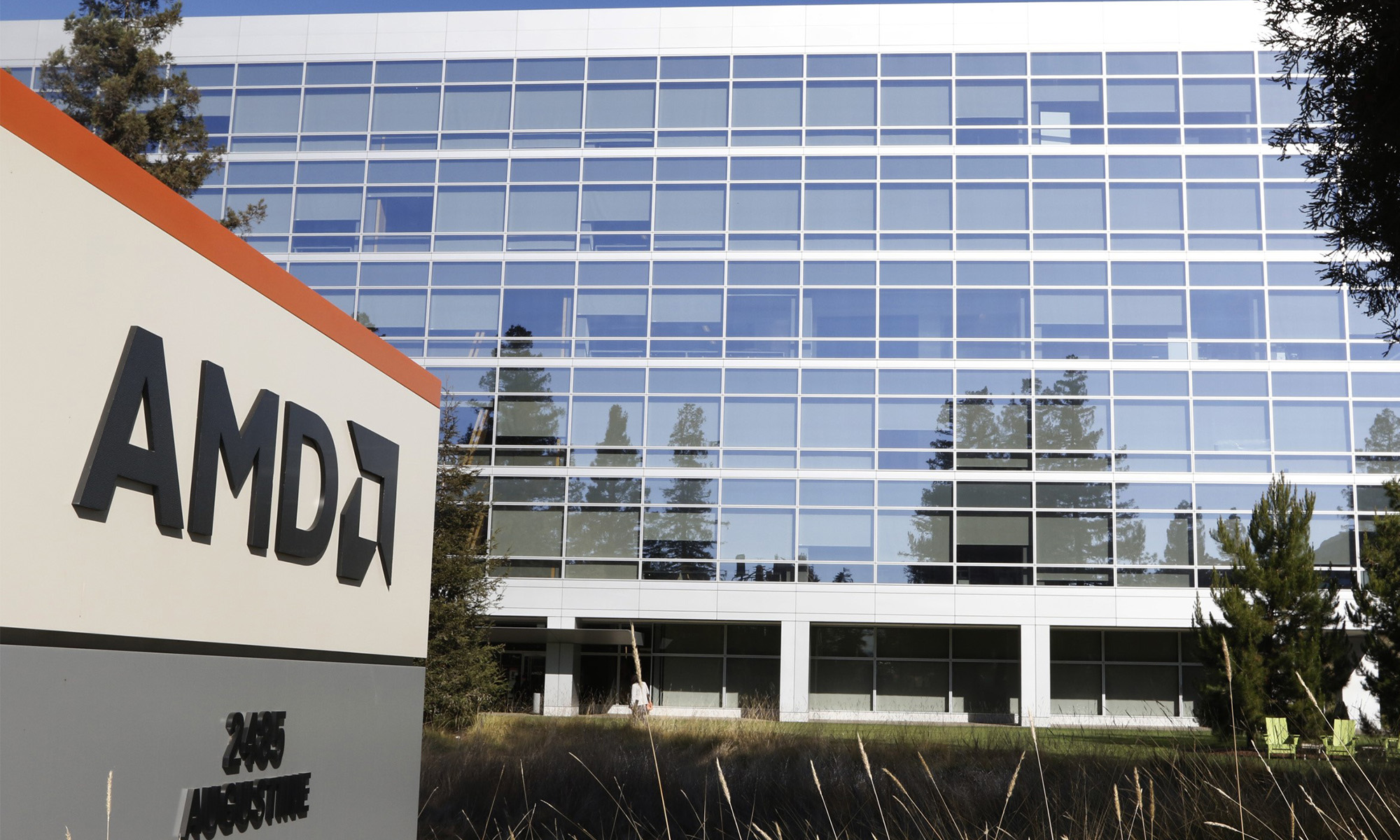
Image source: Advanced Micro Devices.
Advanced Micro Devices (AMD +4.35%) reported a non-GAAP profit during its latest quarter, a vast improvement over recent quarters. But on a GAAP basis, the company posted a massive $406 million net loss. The discrepancy was mostly due to a $340 million charge that AMD took related to its wafer supply agreement with GlobalFoundries. The GAAP numbers include this charge; the non-GAAP numbers don't.
Companies report non-GAAP figures in an effort to give investors a number that better reflects their true performance. Unfortunately, many companies back out recurring costs like stock-based compensation, a practice which I strongly disagree with. Backing out one-time costs, like the wafer supply agreement charge, is often a reasonable thing to do. But when a pattern of "one-time" costs begins to emerge, investors should think twice about accepting those non-GAAP numbers.
A history of "one-time" costs
That $340 million wafer supply agreement charge was the biggest one-time cost that AMD has reported in the past few years, but it certainly wasn't the only one. Between the beginning of 2014 and the third quarter of this year, AMD has taken 15 different one-time charges, with a whopping total of nearly $1.1 billion.
|
Period |
Description |
Charge |
|---|---|---|
|
Q3 2016 |
Wafer supply agreement amendment |
$340 million |
|
Q3 2016 |
Loss on debt redemption |
$61 million |
|
Q2 2016 |
Restructuring |
$7 million |
|
Q1 2016 |
Restructuring |
$3 million |
|
Q4 2015 |
Restructuring |
$6 million |
|
Q3 2015 |
Restructuring |
$48 million |
|
Q3 2015 |
Inventory writedown |
$65 million |
|
Q2 2015 |
Technology node transition |
$33 million |
|
Q1 2015 |
Restructuring |
$87 million |
|
Q4 2014 |
Goodwill impairment |
$233 million |
|
Q4 2014 |
Restructuring |
$71 million |
|
Q4 2014 |
Inventory writedown |
$58 million |
|
Q2 2014 |
Loss on debt redemption |
$49 million |
|
Q1 2014 |
Workforce rebalancing |
$14 million |
|
Q1 2014 |
Loss on debt redemption |
$15 million |
Data source: AMD quarterly reports.
All of these charges, with the exception of the inventory writedown in 2015, were backed out by AMD when calculating non-GAAP earnings. Many companies take restructuring charges, but when restructuring becomes a recurring theme, I don't think it's reasonable to ignore those costs any longer.
Even that big wafer supply agreement charge isn't truly a one-time cost. AMD took a massive $703 million charge related to that agreement back in 2012. One reason for the charge: "GLOBALFOUNDRIES waived the exclusivity arrangement for AMD to manufacture certain 28nm APU products at GLOBALFOUNDRIES for a specified period."
What was the reason for the $340 million charge during the third-quarter of this year? The new agreement "Provides AMD with the flexibility to manufacture certain products with another wafer foundry." That sounds awfully familiar.
Many companies take all sorts of charges and back them out of their non-GAAP figures. AMD is certainly not unique in that sense. But when these charges seem to repeat themselves, it becomes difficult to argue that they're truly "one-time."
Looking ahead
None of this says anything about AMD's ongoing turnaround efforts. The company has made clear progress, with both of its segments growing sales during the third quarter. Its Polaris graphics cards have put the company in a far better position than it was in last year, although NVIDIA remains dominant with its Pascal graphics cards. The semi-custom business got a boost with new, high-end game consoles that launched this year. And Zen is coming in 2017.
But as we go forward, remember that AMD has a long history of one-time charges. Its non-GAAP numbers must be taken without a grain of salt.






